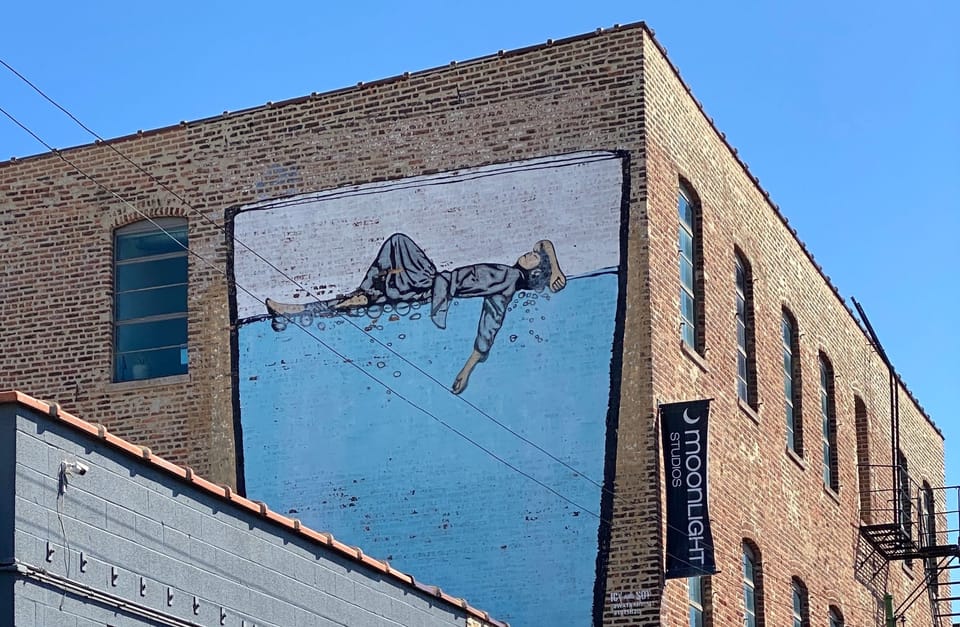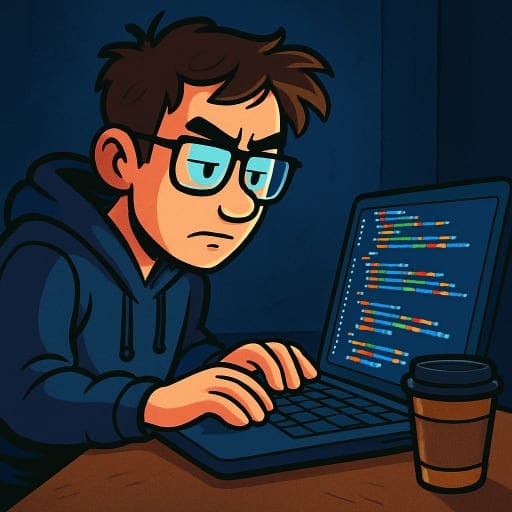Engineering Ageism in the AI age

Check out my Q1' 25 Recap if you missed it. Today we're talking everyone's favorite topic, AI, with a bit of a twist.
Time to Jack In
You know the archetype: hoodie-clad, lit by the pale glow of a monitor, deep into a 3am bug hunt. Fueled by Red Bull and raw ambition.
We’ve seen it in movies, startup lore, and job descriptions. And the key word in that image? Young.
The operative word? Young.

That's mostly because the most sought after engineers by companies tend to resemble the above archetype: the mythical 10x engineer. Young, single, without kids or obligations that could possible pull them away from work.
What Happens as We Age
But what happens when the hoodie gets swapped for a kid’s school drop-off fleece and New Balances? When all-nighters aren’t heroic, just exhausting?
It's no surprise that as you age, the desire to do those late marathon coding sessions begins to decrease. Life, health, kids, shifting interests, drive, and a myriad more things are all reasons for the shift, even for engineers. Are younger engineers more capable—or are they simply throwing more darts at the board? Hard to say, but what is hard to disagree with is the fact that as this current wave of internet native software engineers hit middle age, we're also getting hit with something other industries have: ageism.
As engineers age, many of us run into a hard truth: companies may love experience, but they hire youth.
Even as in-demand, well-paid professionals, we face the same markers that trigger ageism: rising salaries, family obligations, resistance to the latest shiny tool, aging parents, our own health. Those office perks become less and less appealing the more our schedule adjusts to a better work life balance and a 9-5 work day. Who has time for ping pong when there's kids swim practice, homework help and laundry piling up at home?
What if you still love building—but can’t (or won’t) grind like you’re 25? What if your value isn’t in how fast you type, but in what you choose to build? For most engineers, you get shuffled into the dreaded management career path. Coding's for younger, cheaper folks after all.
An Army of Minions
All of the above has been swirling around my head for the last few years as I have been wrestling with where to go regarding my career. I'm an engineer after all but damn.. do I need to write ANOTHER CSV text file parser? I do not.
And now, just as we’re bracing for the next wave of ageism in tech… an unexpected ally arrives: AI.
When I started No Fixed Plans back in '21, I intentionally took an approach I call staff-0, meaning I wanted to see how far I could get without any employees or full time staff. I also wanted to get back to building and solving problems, not being stuck in endless meetings. But how do you do that AND building an actual business? I had no idea what that would look like, but why not try?
Eighteen months later, ChatGPT launched—and suddenly, tech hit a crucible moment. When Fall of '22 came around, I suddenly had a glimmer of how I was going to accomplish staff 0: Enter AI (specifically Claude).
At first, it was a better search tool. As capabilities matured, I began to integrate it more into my workflow: an architecture companion then as beefed up code completion.
Now, with the launch of the latest round of AI models, I'm no longer limited to figuring out how AI can help me with my tasks. I can now give AI its own tasks.
Why bother killing myself to be a 10x programmer when I can have an unlimited number of 10X programmers at my fingertips?
To be clear: these are not the same as senior engineers able to work independently with minimal oversight. AI code does require consistent reviews and checks to course correct. However, is it as good as a previous intern or Jr. Engineer? You bet. We've got an unlimited supply of bourgeoning 10x engineers at our gray beard fingertips and they don't care about ping pong either.

It's Time To Build
What that means is that capacity for building solutions has increased exponentially. It's not a hard and fast requirement that you find, hire and develop a large team internally anymore. However, if the results of a 36 hour coding session can now be had for a few bucks & a couple well written prompts while I get my tea, what happens to our young friend from above?
The next era of engineering won’t belong to those who grind the hardest—it’ll belong to those who guide the smartest. The next wave of engineering won’t be led by those with the most hours in the chair—it’ll be led by those who know how to leverage those hours. In the age of AI, our edge isn’t in typing faster—it’s in thinking sharper, prompting smarter, and building bigger with fewer hands.
Griff